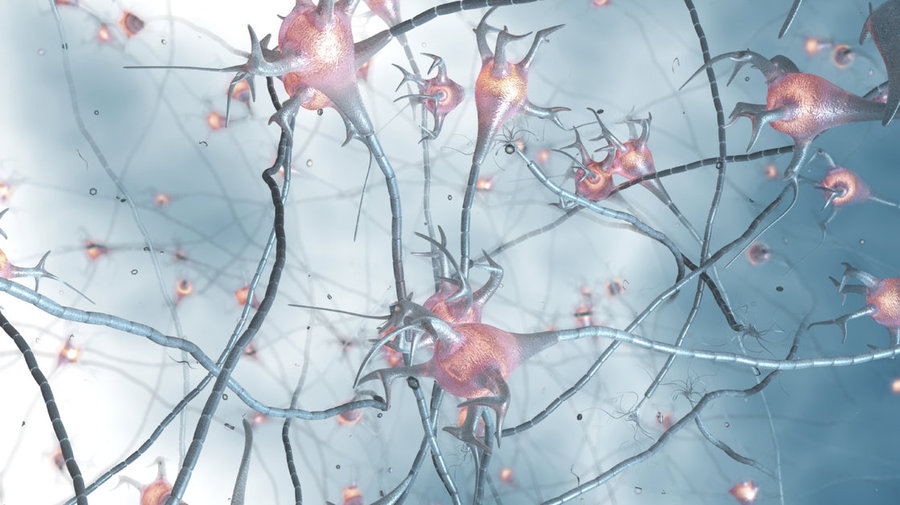How the Internet, Dopamine and your Brain are Working Together to Screw Your Potential. — Life Learning — Medium
Dov Werdiger stashed this in Innovation
Stashed in: Brain, Innovation, Medium
By stashing this I am an RC
An RC?
For the purpose of this exercise lets say there are two types of creators which will follow later with the two types of cognitive functions involved in each: Replication Creators (RC) and Skilled Creators (SC).
If you Google something, go to a conference, or read a book and then create something from the inspiration that comes; it is replication creation (RC). Simply: I learned this <thing> from <SC source> so that I could go and perform <task required>. You may have often heard the term “key-takeaways” when at a conference. What it really means is “What pieces can I use on Monday?”.
Skilled creation on the other hand is using the space between your ears like a muscle and producing something new with it without the help of someone else. It doesn't necessarily need to be groundbreaking but the key difference is that you used your brain and came up with a solution. A secondary action would be to show what you built to the world (for their consumption) but its not necessary for the purpose of this argument.
If you’re on stage at a conference, you’re likely the SC. If you’re in the audience, you’re likely the RC. Same goes for blogs, YouTube, Wikipedia and so on. The way that you are facing easily indicates your position. With information so readily available to us, this process works for everything we have in life: recipes, musical instruments, home decor, socialization, you name it.
Oh I see. Our brain works against us:
So again it goes like this: You are hit with with the stress of a task. You then Google what you need, read a book, go to a conference etc.. You then achieve your goal faster because of what you absorbed from a “skilled creator” (SC), immediately dump it out where it is needed and your brain lathers your frontal lobe with feel good fluids. A quick fix.
Given the information above, why would anyone waste time to create something something truly new and innovative if it is so easy (and chemically rewarding!) to be replicative little mammals? To answer that, let’s look at the cognitive functions more often seen in a SC mind. James Webb Young wrote a book called “A Technique for Producing Ideas” where he says that there are two general principles:
(1) an idea is nothing more or less than a new combination of old elements and(2) the capacity to bring old elements into new combinations depends largely on the ability to see relationships.Producing new ideas is a fundamental process of intelligently combining items we already know and understand in new ways. This process then aligns with three functions (or networks) of the brain to creative innovative things.
The Attention Control Network is your focus. The Imagination Network is remembering things that happened in the past (we also use this network to construct mental images) and finally the Attentional Flexibility Network which monitors the world around us and makes the switches between the Imaginational and Attentional.This means that entirely different parts of the brain are being used and you are taking dopamine out of the equation by a significant amount! Meaning, that you will not be chemically rewarded during this process until you hit your “Aha” moment. The gratification arrives much later than what happens during and after. Fortunately for the SCs, this “high” lasts longer because many SC merits are permanent. Long term success is a exponential supply of your drug. You just have to build it.
The Fix? Let Your Brain Do The Work:
So how do we get out of these bad cognitive habits? The simple answer is be creative more often and research less. If you’re capable of using your brain to arrive to a creative thought, do it and show it to everyone else. A life of learning is great but practicing to the point of mastery is better. Approach life with research like a mental set of training wheels. Learn from someone else how to do something just long enough to get you moving and then practice until you master it. Avoid the temptation to look for the answer from a quick source or someone else no matter how quickly rewarding it is. Nicolas Carr showed us in 2010 that The Internet is Changing the Way We Think(and basically making us dumb and unfocused). Quote:
“every medium develops some cognitive skills at the expense of others.” Our growing use of the Net and other screen-based technologies has led to the “widespread and sophisticated development of visual-spatial skills.” We can, for example, rotate objects in our minds better than we used to be able to. But our “new strengths in visual-spatial intelligence” go hand in hand with a weakening of our capacities for the kind of “deep processing” that underpins “mindful knowledge acquisition, inductive analysis, critical thinking, imagination, and reflection.”As a final step in this skill, show the world that you’re a master by using the cognitive trickery that we all have in our brains to your advantage. Provide “key takeaways” with everything that you do and suddenly (and subconsciously) people will flock to your wisdom anytime their brains are stressed by a problem needing a fast solution. You are effectively thinking for everyone else and your career moves accordingly. Stressed RCs looking for a fix of that all powerful dopamine has caused you to instantly become their intellectual drug dealer of choice.











5:20 AM Jun 07 2014